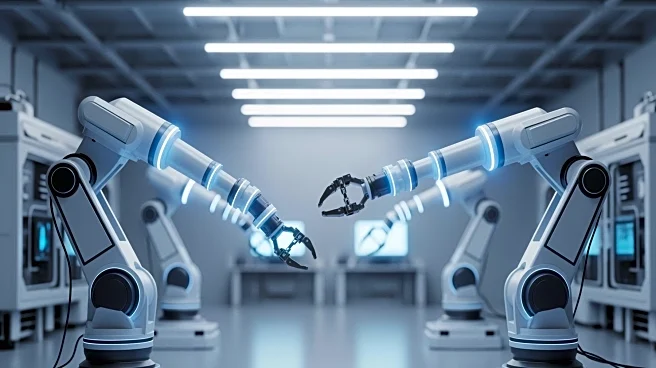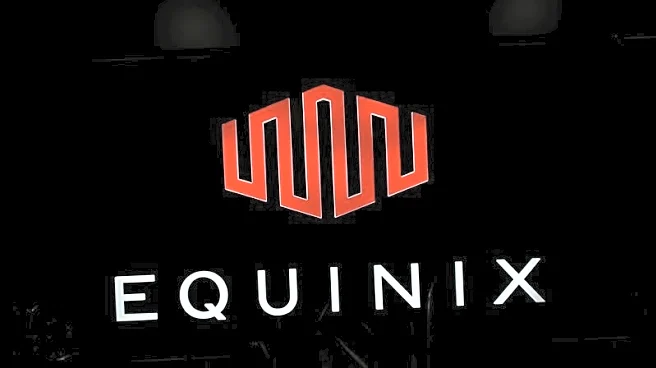What's Happening?
Aptiv, a technology company focused on creating safer and more connected environments, has announced a strategic partnership with Robust.AI, a provider of AI-driven industrial automation solutions. The
collaboration aims to co-develop AI-powered collaborative robots, known as cobots, to enhance warehouse and industrial automation. Aptiv will integrate its perception portfolio and machine learning technologies with Robust.AI's platform to deliver scalable and efficient robotic workflows. The joint solution will feature Aptiv's PULSE Sensor, Radar ML, and Behavior ML technologies, alongside Robust.AI's advanced optical sensors and decision-making models. This partnership is set to accelerate the deployment of AI-powered solutions across multiple industries, offering real-time perception and dynamic path planning capabilities.
Why It's Important?
The partnership between Aptiv and Robust.AI is significant as it represents a major advancement in industrial automation, potentially transforming how warehouses and factories operate. By integrating AI-powered cobots, businesses can achieve higher productivity, efficiency, and safety in their operations. This development is crucial for industries looking to optimize workflows and reduce human error in complex environments. The collaboration also highlights the growing importance of AI in industrial settings, where it can provide data-driven insights and continuous learning capabilities. Companies that adopt these technologies stand to gain a competitive edge by improving operational efficiency and adapting to evolving market demands.
What's Next?
The next steps for Aptiv and Robust.AI involve expanding their proof-of-concept to leverage Aptiv's compute and Wind River platforms, including the VxWorks real-time operating system and Helix Hypervisor. This will enable best-in-class performance and virtualization, supporting a wide range of system designs. Robust.AI's Carter cobot, designed to augment existing workforces, will be further developed to support multiple workflows on a single platform. The partnership aims to bring enhanced productivity and efficiency benefits to new industries, with Aptiv's global reach and resilient supply chain facilitating scalable production of complex systems.
Beyond the Headlines
This collaboration could lead to long-term shifts in the industrial sector, where human-centric design and AI-powered workflows become standard practice. The ethical implications of AI in the workplace, such as job displacement and the need for new skill sets, will need to be addressed. Additionally, the integration of AI in industrial settings raises questions about data privacy and security, as these systems rely on real-time data collection and analysis.











